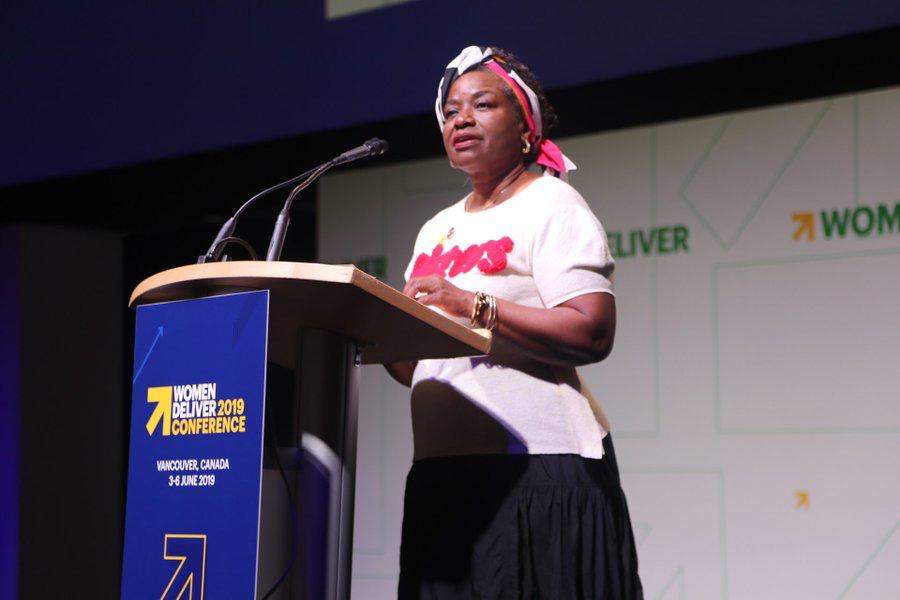
Barriers against gender equality must give way - Natalia Kanem
Advocates of gender equality have been urged not to relent in changing the stubborn social norms that create barriers to empowering women and girls to exercise their reproductive rights.
The Executive Director of the United Nations Population Fund, (UNFPA), Dr. Natalia Kanem, who said this noted that reproductive health and rights are the foundation of life choices and also the cornerstone of the Sustainable Development Goals (SDGs).
She was speaking at a session which discussed the topic, ‘The Power of Breaking Barriers: Systemic change, individual gain’ at the Women Deliver conference held in the city of Vancouver, Canada.
The conference, held under the theme: Power, Progress, Change, was attended by over 8,000 world leaders, influencers, advocates, academics, activists, and journalists from more than 165 countries.
Dr. Kanem indicated that in many countries, laws regarding sexual and reproductive health are being challenged and being questioned.
Breaking these barriers to empowerment and equality for women will involve engaging with governments, civil society organisations and the private sector to create an enabling environment for gender equality, said Dr. Kanem.
Gains of ICPD
Dr Kanem observed that despite the legislative and cultural barriers, remarkable gains had been made in the area of reproductive health and rights since the International Conference on Population and Development (ICPD) held in Cairo, Egypt in 1994.
“There is progress, fewer women are dying through childbirth, there is a decline in Female Genital Mutilation (FGM), more children staying in schools, and there has been repeal of laws against FGM and child marriage,” she stated.
Accelerate progress
However, she added, there is the need to accelerate the progress before 2030.
“What was envisaged in ICPD is still a bit distant. Hundreds of women are still waiting for the Cairo promises,” she added.
Dr Kanem further said data from 45 countries show that only half of married women can make decisions about their sexuality. Many still have to ask permission.
Also, there is the need for Comprehensive Sexual Education to bring the youth from imposed ignorance. Adolescent girls are desirous of information on sexual health and reproductive rights and health systems must be equipped to deliver quality reproductive health service.
Dr. Kanem further stressed the need for robust financing to sustain and develop more innovative and creative solutions to women empowerment and gender equality, and called for the active involvement and support of the private sector.
“The clock is ticking fast towards 2030, we need more resources to deliver,” she pointed out.
Restrictive laws
Nancy Northrup, President and CEO of Centre for Reproductive Rights, a New York based global human rights organisation, said because of restrictive laws and culture, women and girls are unable to make decisions regarding their reproductive rights.
“Laws and culture barriers are denying women access to their reproductive rights,” she said, and stressed that “women and girls have to have the agency to say what they want.”
Dr. Alvaro Bermejo, Director-General of the International Planned Parenthood Federation (IPPF) also noted that stigma around sexuality and culture was shaping the decision of women and girls to make their own choices.
“Adolescents, like everyone, are sexual beings and the decision regarding what they want should rest with them,” he emphasised.
But this decision, he noted is hindered by the opposition that is working on fear, hate and building on the stigma.
Dr Bermejo pointed out that the politics of fear was more aggressive than ever and must be overturned.
